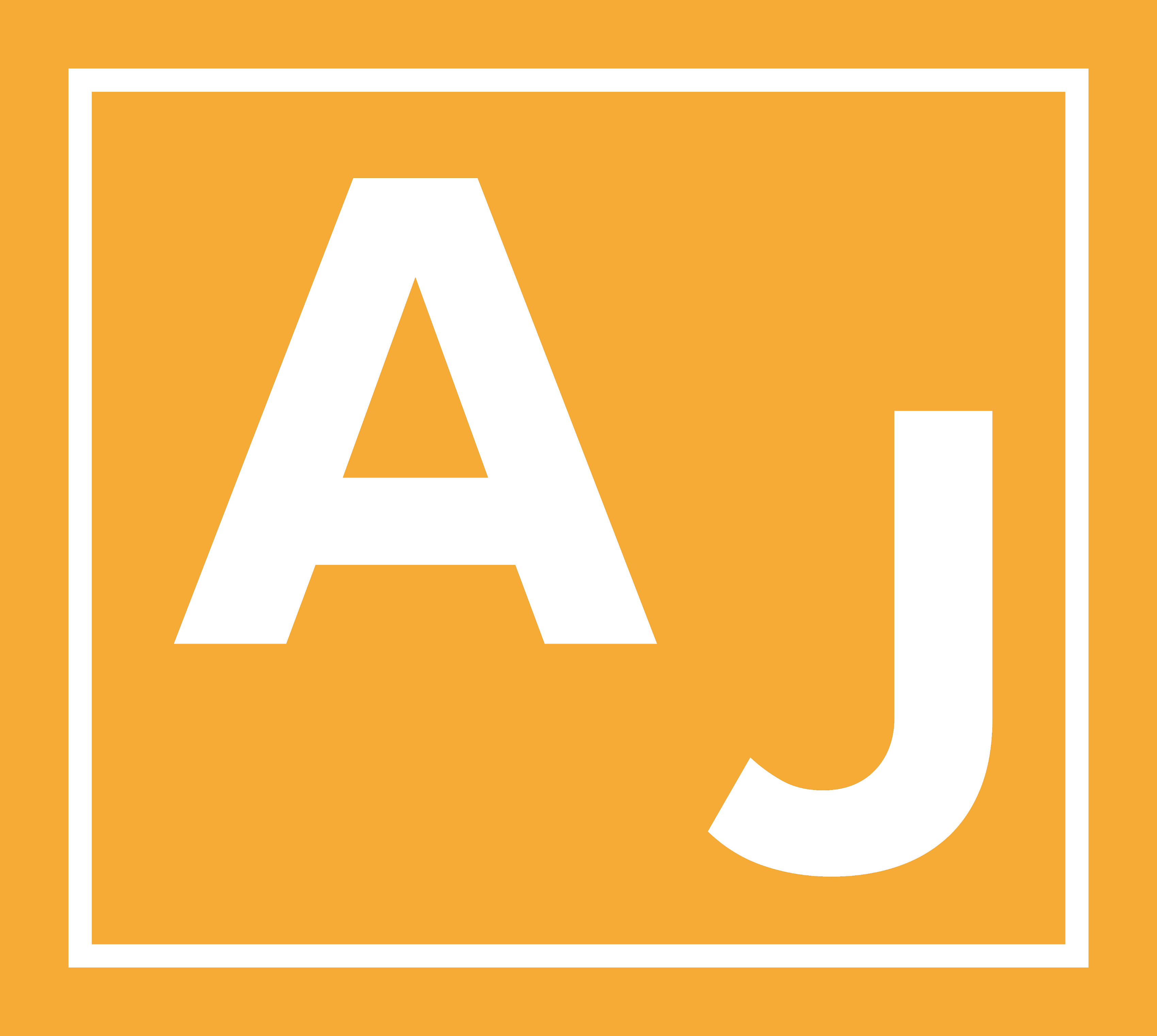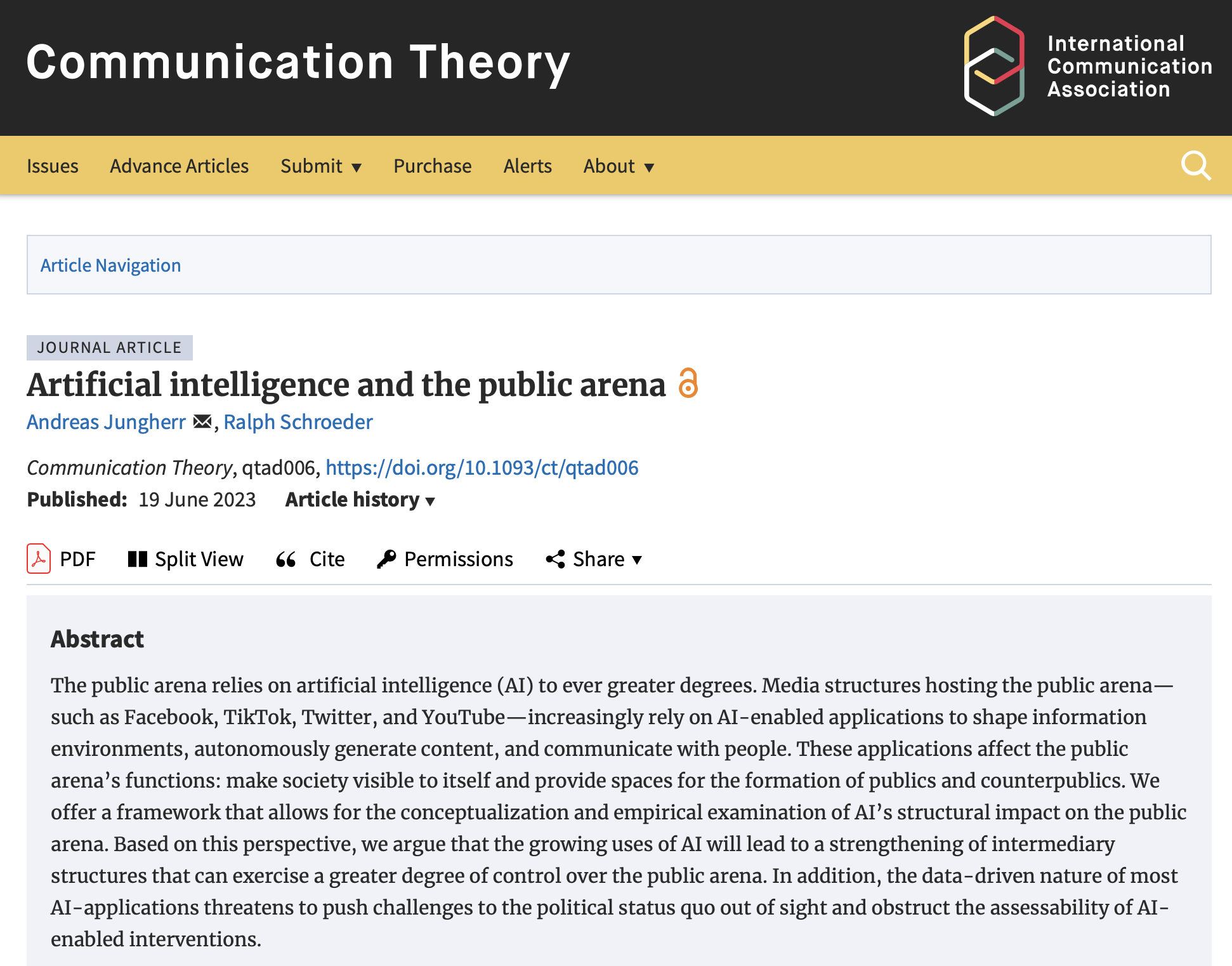In a new article for Communication Theory, Ralph Schroeder and I discuss the role of artificial intelligence (AI) in the public arena.
In Artificial intelligence and the public arena, we present a novel theoretical framework for analyzing the uses, workings, and impacts of AI in the public arena.
We prefer the term public arena over public sphere since its focus on structures allows a more focused discussion about the (shifting) conditions under which political discourse, competition, and self-reflection occur.
We define the public arena as interconnected communicative spaces hosted by media structures – e.g. news media, digital platforms, & discursive institutions – that enable and constrain publication, distribution, reception, and contestation of information.
AI features in the public arena mainly in three ways:
– shaping information flows and user behavior,
– generating content,
– communicating agents.
This has negatively impacted the assessability of the public arena, its structures, and workings. This threatens its legitimacy in mediating the relationship between people and political elites, hosting public discourse and political competition, and providing relevant information.
We expect AI to increase control by
– submerging new, challenging, or offending voices,
– leading to greater demand for intermediary structures filtering unreliable or misleading AI-generated content,
– demonetizing news media by offering access to the public arena mediated by communicating agents summarizing information found in digital communication environments.
An AI-reliant public arena will largely shift away from a predominantly open, noisy, and sometimes offensive web toward structures allowing for greater control over safe and vetted spaces. This will further empower gatekeepers, weaken challengers, and reinforce the status quo.
These are of course early days. Specific uses and implementations might shift. But whatever the outcome, social scientists must engage with AI’s role in the public arena by adapting or developing concepts and measurements that allow society to reflect and improve on those uses.
The article is part of a special issue on “Reconceptualizing Public Sphere(s) in the Digital Age. On the Role and Future of Public Sphere Theory” by Mike S. Schäfer and Mark Eisenegger who did great work in putting together a set of inspiring articles. Very happy to be in that company.
The article is part of the larger project Communicative Power in Hybrid Media Systems, which has received generous funding from the VolkswagenStiftung.
Abstract: The public arena relies on artificial intelligence (AI) to ever greater degrees. Media structures hosting the public arena—such as Facebook, TikTok, Twitter, and YouTube—increasingly rely on AI-enabled applications to shape information environments, autonomously generate content, and communicate with people. These applications affect the public arena’s functions: make society visible to itself and provide spaces for the formation of publics and counterpublics. We offer a framework that allows for the conceptualization and empirical examination of AI’s structural impact on the public arena. Based on this perspective, we argue that the growing uses of AI will lead to a strengthening of intermediary structures that can exercise a greater degree of control over the public arena. In addition, the data-driven nature of most AI-applications threatens to push challenges to the political status quo out of sight and obstruct the assessability of AI-enabled interventions.
Andreas Jungherr and Ralph Schroeder. 2023. Artificial intelligence and the public arena. Communication Theory (Online First). doi: 10.1093/ct/qtad006.

